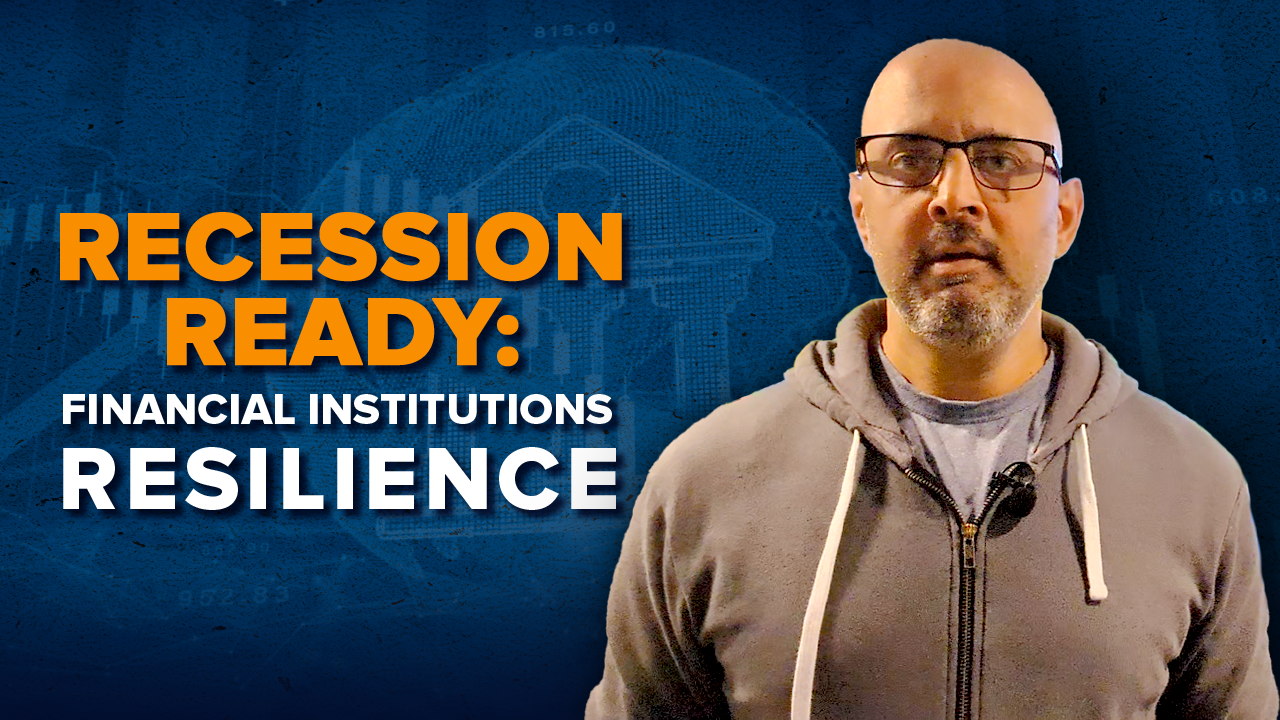Invictus Tariff and Trade War Recession Scenario
The Invictus Tariff and Trade War Recession 2.0 scenario (updated August 19, 2025) is intended to reflect (but not predict) a tail-risk outcome for the U.S. economy, driven by...

In the ever-evolving financial landscape, the looming question is, "Is a recession coming?" Executives and directors grapple with managing financial institutions effectively amidst economic uncertainty. This video delves into recession predictions, challenges faced by financial institutions, and the pivotal role of strategic and capital plans.
Debates about an impending recession arise from mixed indicators. While GDP soars and unemployment remains stable, circumstantial evidence and an inverted yield curve for 16 months suggest caution. Quantitative tightening adds complexity, draining liquidity and potentially triggering a credit crisis and recession.
Proactivity is key for institutions to be recession-ready without succumbing to paralysis. Like a football coach's playbooks, financial institutions need a strategic plan for offense and a capital plan for defense. The strategic plan outlines growth based on a forecast, while the capital plan acts as an alarm system, signaling deviations or necessary actions.
A well-designed capital plan serves as an alarm system with early warning indicators focused on credit, interest rate risk, and liquidity risk. Optimal triggers and limits, set using data and analytics, ensure effective risk management. Internal limits and triggers for regulatory capital ratios act as guardrails, offering a cushion for unforeseen challenges.
When the alarm system activates, trust is crucial. Breaching triggers demands a serious evaluation, leading to actions like dialing back growth or adjusting capital actions to preserve capital. Financial institutions must avoid the mistake of ignoring alarms, as this jeopardizes resilience in a recession.
Every institution needs a two-playbook strategy, with the capital plan as a tangible compass through uncertainty. Trusting the alarm system and taking proactive measures ensures recession readiness without missing valuable opportunities. The key lies in balancing offense and defense, adapting to the ever-evolving economic landscape.
Watch Full You Tube Video:
For more information or to schedule and exploratory call contact Patti Casaleggio - pcasaleggio@invictusgrp.com
Invictus Group assists financial institutions with writing capital plans, stress testing, and both identifying and quantifying limits and triggers for key ratios which are customized to the bank. For more information on these services, please contact Patti Casaleggio at pcasaleggio@invictusgrp.com.

CECL Trends, CECL, community bank regulations, community banks, CECL Modeling, acl challenges, bank regulatory compliance, advanced cecl
Now that most community banks have eight to ten quarters of CECL experience under their belts, many are still grappling with foundational issues such as overreliance on qualitative factors, lack of responsiveness to risk rating...

capital planning, community bank regulations, Deregulation, bank strategy, community banks, regulatory capital, bank growth strategy, cre risk
Author : Adam Mustafa, CEO, Invictus Analytics
Community banks now have the clearest path in nearly two decades to reshape their regulatory capital requirements—and they shouldn't miss it. While most recent efforts to ease...